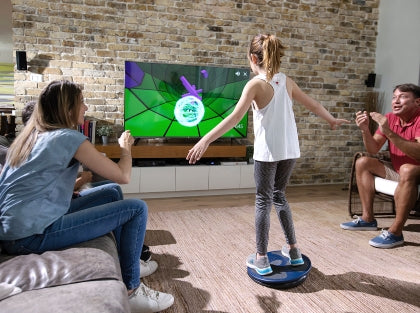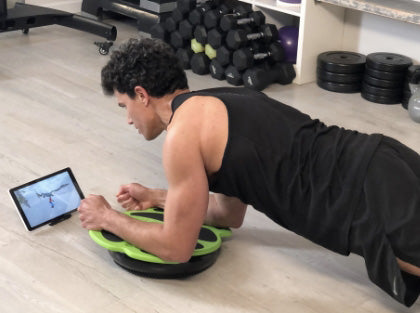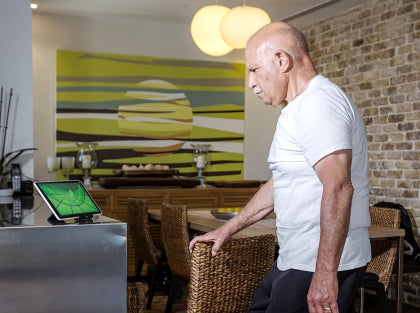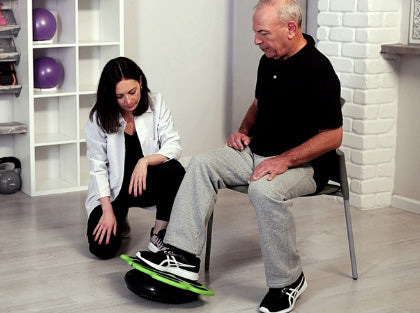5 Ways Working On Body Balance Is Improving Your Life

If left to be overlooked, a loss of balance and coordination can lead to a series of negative impacts further down the line, especially for older people. On the other hand, by working on your balance, your life will improve in several ways.
As time passes, your body will lose its natural balance abilities
Similar to the decline of various other biological faculties, this is part of the natural aging process. The ability to balance is a difficult skill that requires the coordination of the brain, muscles, and parts of the inner ear to do successfully. If not utilized very often, these three systems will become increasingly uncoordinated over time, and balance issues such as difficulties staying upright and maintaining posture will develop.
While your ability to balance will regress over time, it doesn’t mean that you have to let it happen or that you can’t do anything about it. You can do many things to mitigate the adverse effects of aging on your ability to balance. One of these things (something that we highly recommend) is dancing.
Not only is dancing fun, but it keeps you fit, coordinated, and develops your ability to balance. On the other hand, if you’d prefer something a little more convenient, we recommend using balance training technology such as Bobo Home, which converts balance training into a fun and challenging game.
No more back pain and bad posture
As a result of inadequate form, a small range of movement types, and sedentary lifestyles, more and more people develop poor postures. Poor postures typically result in hunched shoulders, anterior pelvic tilt, diminished mobility in your upper-back region, and muscle weakness if left untreated too long. On top of this, poor posture can lead to spinal problems, which comes with its host of chronic pain issues to difficulties in standing, walking, and running.
To improve your posture, we recommend that you improve your balance. By improving your balance, you train your body to recognize the still and dynamic patterns of movement natural to the human body. Furthermore, the improvements in your posture that come from this improve your ability to balance. The two of them operate in a feedback loop, with the benefits of strengthening one leading to improvements of the other.
Reduce the risk of falling
Falls don’t only have the potential to cause serious injury, but they can also have some very debilitating long-term side effects. Depending on the damage caused by the fall, muscles, joints, and bones may not heal fully or heal in a way that limits movement efficiency and coordination. These limitations can result in lifestyle changes where those afflicted are physically unable to be as active as before, forcing them to become more sedentary. To mitigate this, we recommend balance exercises.
Balance exercises are great for improving your core strength and your lower body strength and joint stability. As you work on body balance, the joints and muscles in your legs become more robust, improving their ability to respond to shifts in weight and traverse uneven surfaces. With routine balance training and the subsequent improvement of your lower body strength and joint stability, the risk of falling, along with the extent of injury that comes with it, will be reduced significantly.
Increased confidence
Those with poor balance, older people in particular, who on average have a lower bone density than their younger counterparts, are more likely to feel less confident about going outside. Being outside is accompanied by an ever-looming fear that they may trip and injure themselves at any time.
This debilitating fear tends to reduce their confidence and perceived self-efficacy to the point that they’d rather stay home and remain sedentary. This further diminishes their balance in an insidious self-perpetuating cycle. Fortunately, the opposite applies — by improving your balance, you become less passive and more active. As your ability to get out and about improves, so does your confidence.
Keep your mind sharp
Improving your ability to balance has profound benefits for your reflexes and reaction times. That is because balancing exercises lead to improved strength, agility, and coordination. More often than not, your ability to react quickly is the deciding factor of whether or not you fall and injure yourself. This means that by improving your balance and keeping your mind sharp, you’ll be able to avoid potential injury.
Conclusion
To sum things up, working on your ability to balance improves your life in various ways. You’ll be able to retain your ability to move and coordinate your body relatively quickly, even to old age. You’ll be able to reduce the likelihood of potential falls and injuries and improve your posture. You’ll also notice that you have quicker reflexes and reaction times, and you feel more confident about leaving the house without risking injury.
If you would like a compelling and entertaining way to improve your ability to balance, we recommend Bobo Home. Bobo Home introduces a simple and fun training method specializing in balance training and injury recovery therapy. Learn more by clicking below.
















Leave a comment